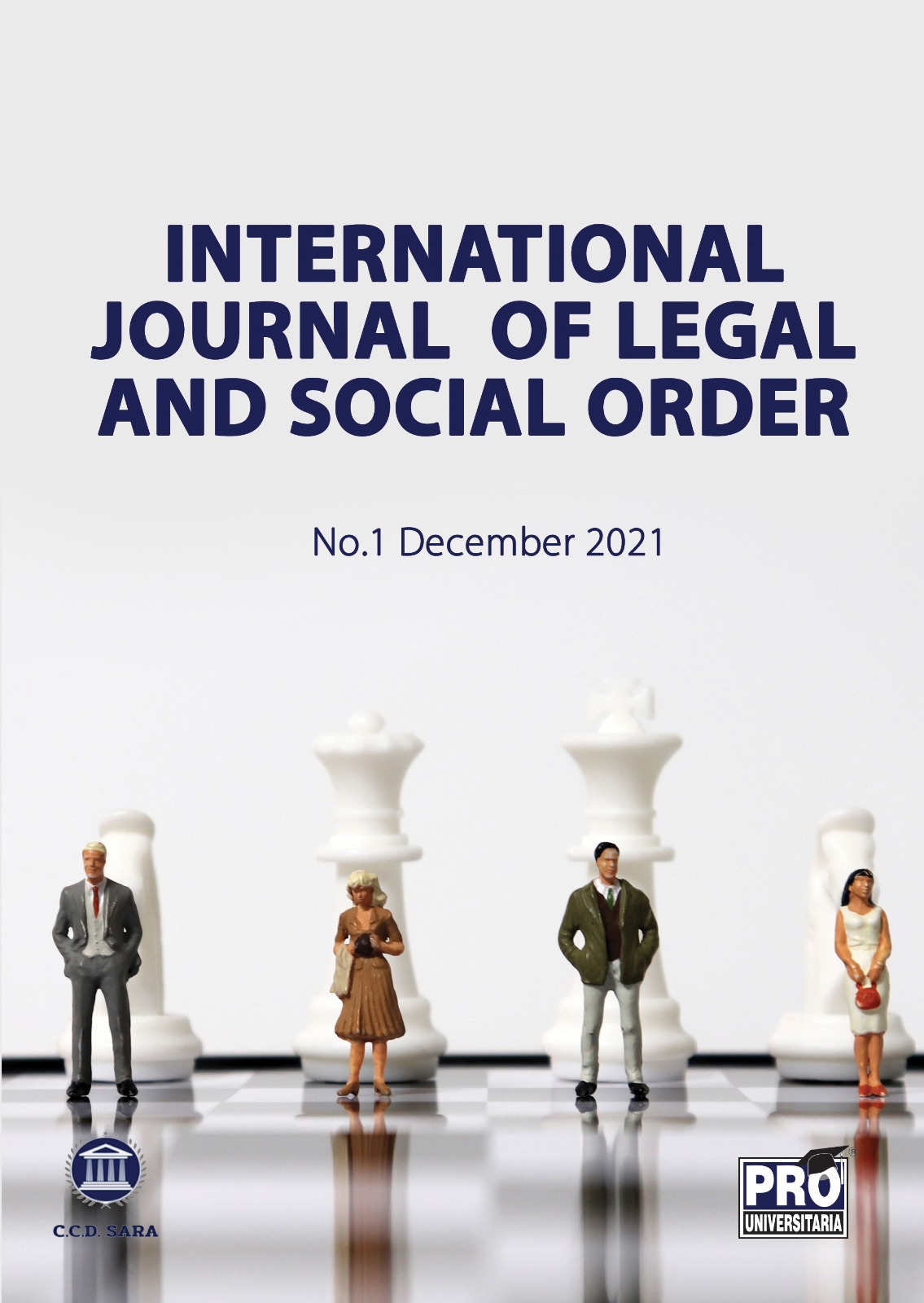UNCONSTITUTIONALITY OF SOME PROCEDURAL-CRIMINAL PROVISIONS REGARDING THE OBLIGATION TO INFORM ABOUT THE TECHNICAL SURVEILLANCE MEASURE
DOI:
https://doi.org/10.55516/ijlso.v1i1.14Cuvinte cheie:
respect for privacy, judicial procedure, public safety, technical surveillance, unconstitutionalityRezumat
The concept of ”public safety” can be viewed, in relation to the need to respect the fundamental rights of the person during judicial proceedings, from a dual perspective:
- on the one hand, public safety is guaranteed by ensuring that these fundamental rights are respected, because the safety of every person involved in legal proceedings ultimately leads to the preservation of public safety;
- on the other hand, some limitations of these rights (in the sense of interfering with their exercise) may occur, in a state governed by the rule of law, only under conditions strictly provided by law and in cases justified precisely by the need to guarantee public safety. This study addresses, from this second perspective, the possibility of limiting by law the fundamental rights of the person during judicial proceedings (in this case, the right to privacy) and refers to the regulation of technical supervision, as evidence in criminal proceedings, calling into question the unconstitutionality of some criminal procedural provisions regarding the obligation to inform the under-surveillance person about the measure that targeted her.
Referințe
Law no. 135/2010 on the Code of Criminal Procedure, published in the Official Gazette no. 486/15 July 2010, as subsequently amended and supplemented;
Lorincz, Anca-Lelia: Drept procesual penal (Criminal procedural law), vol. I, Universul Juridic Publishing House, Bucharest, 2015;
European Convention for the Protection of Human Rights and Fundamental Freedoms, signed in 1950, entered into force on 3 September 1953;
Charter of Fundamental Rights of the European Union, proclaimed on 7 December 2000;
The Romanian Constitution, adopted in 1991, republished in the Official Gazette no. 767/31 October 2003;
Minutes of the Meeting of the chief prosecutors of the criminal and judicial investigation section at the level of the Prosecutor's Office attached to the High Court of Cassation and Justice and of the prosecutor's offices attached to the courts of appeal (May 26-27, 2016), available on www.inm-lex.ro, accesed 10 Oct. 2021;
Chiriță, Cătălin Mihai, in Volonciu, Nicolae; Uzlău, Andreea Simona; Moroșanu, Raluca; Voicu, Corina; Văduva, Victor; Tudor, Georgiana; Atasiei, Daniel; Gheorghe, Teodor-Viorel; Ghigheci, Cristinel; Chiriță, Cătălin Mihai: Noul Cod de procedură penală comentat (The new Code of Criminal Procedure commented), Hamangiu Publishing House, Bucharest, 2014;
Volonciu, Nicolae; Vasiliu, Alexandru; Gheorghe, Radu: Noul Cod de procedură penală adnotat. Partea generală (Annotated new Code of Criminal Procedure. The general part), 2nd edition, Universul Juridic Publishing House, Bucharest, 2016;
Decision of the Constitutional Court no. 244/2017, published in the Official Gazette no. 529/6 July 2017;
Law no. 58/2019 for amending and supplementing Law no. 535/2004 on preventing and combating terrorism, published in the Official Gazette no. 271/10 April 2019;
Law no. 535/2004 on preventing and combating terrorism, published in the Official Gazette no. 1161/8 December 2004;
Ghigheci, Cristinel: Principiile procesului penal în noul Cod de procedură penală (Principles of criminal proceedings in the new Code of Criminal Procedure), Universul Juridic Publishing House, Bucharest, 2014;
Udroiu, Mihail; Predescu, Ovidiu: Protecția europeană a drepturilor omului și procesul penal român (European protection of human rights and the Romanian criminal process), Editura C.H. Beck, Bucharest, 2008;
Draft law amending and supplementing Law no. 135/2010 on the Code of Criminal Procedure, as well as other normative acts, launched for public debate by the Ministry of Justice, on September 2, 2021, available on e-consultare.gov.ro, accesed 28 Oct. 2021.


